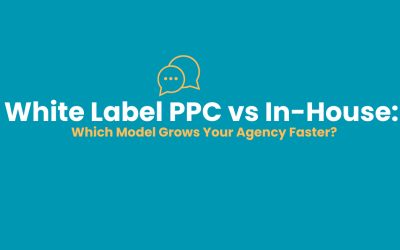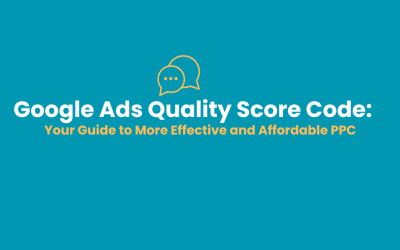Mastering Negative Keywords: A Strategic Advantage for Smarter Ad Campaigns
Negative keywords are one of the most powerful – and often overlooked – tools for ensuring efficiency and relevance in Google Ads campaigns. Used correctly, they prevent wasted spend, improve targeting precision, and directly enhance return on investment.
In this guide, we’ll break down what negative keywords are, why they matter, and how to implement them effectively in your campaigns.
What Are Negative Keywords?
Negative keywords are terms you exclude from your campaigns to stop ads appearing against irrelevant searches. In practice, they act as a filter, ensuring your budget is only spent on queries with a genuine likelihood of converting.
For example, if your business sells vegan snacks, you may target keywords such as “plant-based treats” or “vegan snacks”. Without negative keywords, your ads might still appear for terms such as “beef jerky” or “cheese crackers”—searches that are irrelevant and unlikely to generate sales. By adding exclusions such as “beef”, “cheese”, and “jerky”, you prevent budget being wasted and keep your campaign focused on qualified traffic.
Why Negative Keywords Are Essential
-
Reduce wasted spend – Every click has a cost. Excluding irrelevant queries ensures that budget is directed toward high-value prospects.
-
Improve Quality Score – Relevance is central to Google’s ad ecosystem. By filtering out unqualified searches, your ads align more closely with user intent, leading to stronger Quality Scores and lower CPCs.
-
Increase conversion rates – Targeting only relevant traffic improves the likelihood of turning clicks into leads or sales.
-
Refine targeting – Negative keywords give you control over which audiences see your ads, ensuring your campaigns focus on your ideal customer profile.
-
Maintain ad effectiveness – Avoid ad fatigue by ensuring ads appear in the right context, not in irrelevant search environments.
-
Gain a competitive edge – Many advertisers underuse negative keywords. A disciplined approach can provide a clear advantage over competitors.
How to Use Negative Keywords Effectively
-
Brainstorm exclusions
Start by listing terms you want to avoid. Categories might include:-
Meat and dairy products (for vegan businesses)
-
Competing diet terms (e.g. “keto”, “paleo”)
-
Job-seeking terms (if not recruiting)
-
“Free” or “cheap” (if positioning as premium)
-
-
Review your Search Terms Report
Within Google Ads, go to Keywords > Search Terms. Identify irrelevant terms that are triggering your ads and add them as negatives. Prioritise terms with high spend but no conversions.This is a critical part of effective PPC campaign optimisation.
-
Apply match types strategically
-
Broad match negatives exclude all variations (e.g. -meat).
-
Phrase match negatives exclude exact phrases (e.g. -“with meat”).
-
Exact match negatives exclude only that specific query (e.g. -[beef jerky]).
A layered approach avoids filtering out valuable traffic by mistake.
-
-
Create reusable lists
Group negative keywords into themed lists (e.g. competitor names, job-seekers, unrelated industries) and apply them across multiple campaigns. -
Monitor and refine
-
Review and update lists regularly
-
Adapt to seasonal trends and market changes
-
Avoid excessive exclusions that might restrict qualified traffic
-
-
Apply at the right level
Negative keywords can be implemented at campaign, ad group, or keyword level, giving you control over targeting precision. -
Leverage competitor insights
Tools such as SEMrush or SpyFu can help identify competitor keyword strategies and highlight opportunities for both inclusion and exclusion.
Common Pitfalls to Avoid
-
Ignoring negative keywords entirely – leading to wasted spend.
-
Adding exclusions without understanding their impact – which can block valuable traffic.
-
Overusing broad exclusions – risking lost opportunities.
-
Failing to review lists regularly – allowing inefficiencies to creep back in.
-
Applying the same exclusions across all campaigns – instead, tailor them to campaign goals.
Conclusion
Negative keywords are not simply a “nice to have.” They are a critical lever for maximising efficiency, improving campaign relevance, and driving stronger ROI.
Advertisers who proactively manage and refine negative keyword lists:
-
Spend less on irrelevant clicks
-
Improve Quality Scores and lower CPCs
-
Deliver higher conversion rates
-
Gain a sustainable competitive advantage
Regular analysis, refinement, and testing are essential. By treating negative keywords as a strategic discipline rather than an afterthought, you will ensure your paid search campaigns are consistently aligned with business objectives.
Happy optimizing, friends! 🚀












